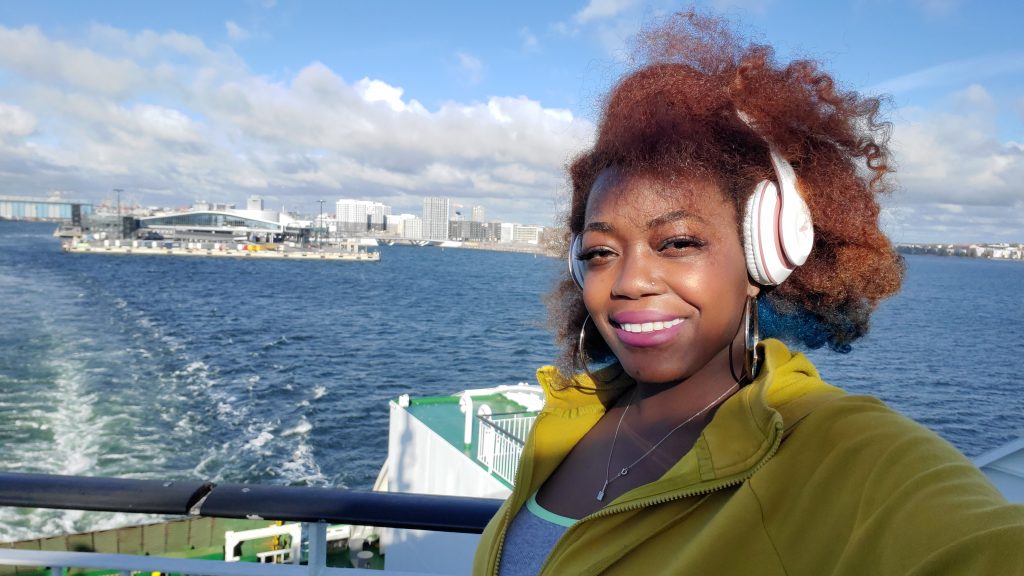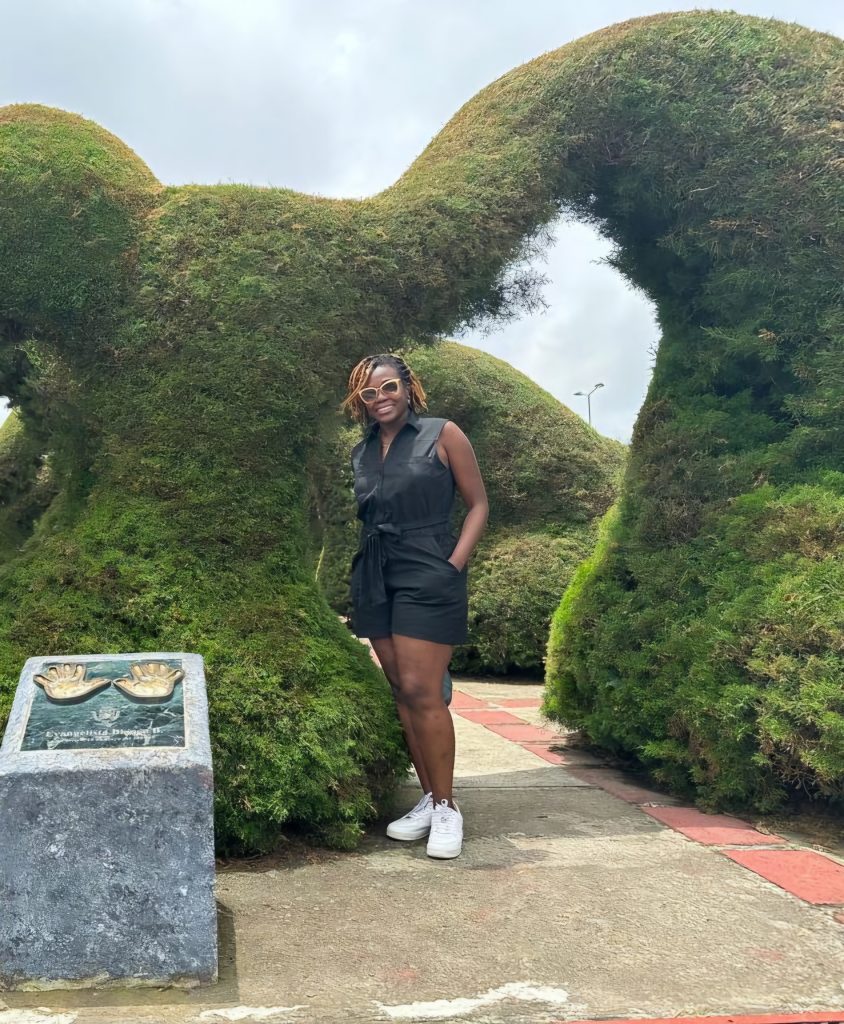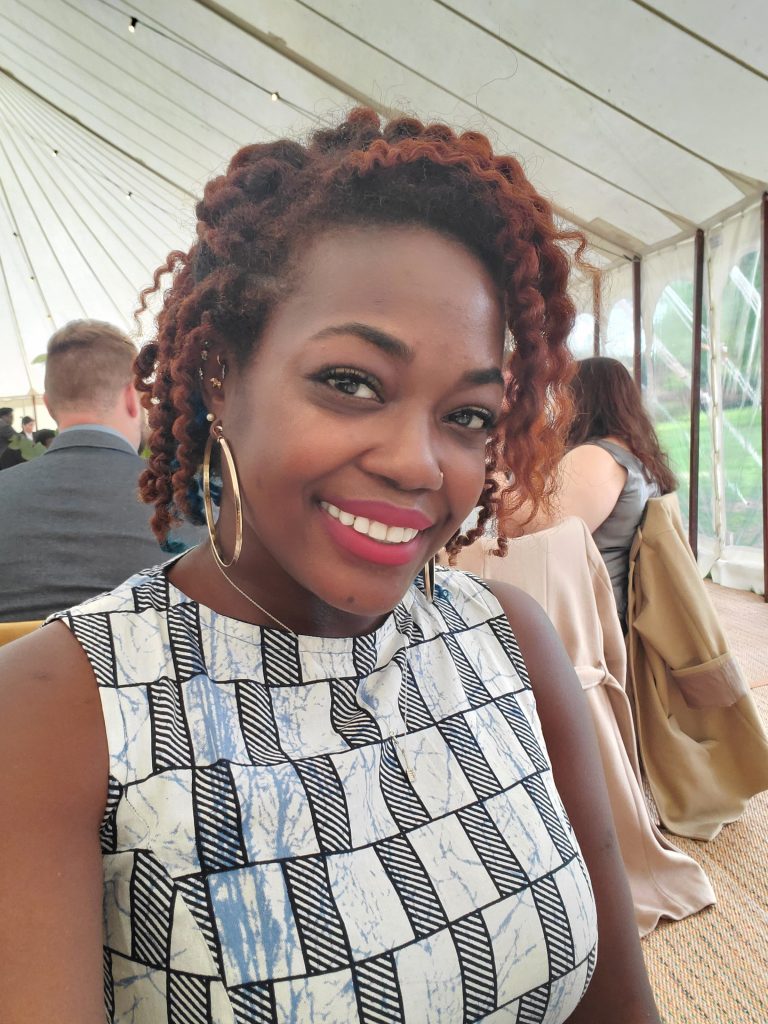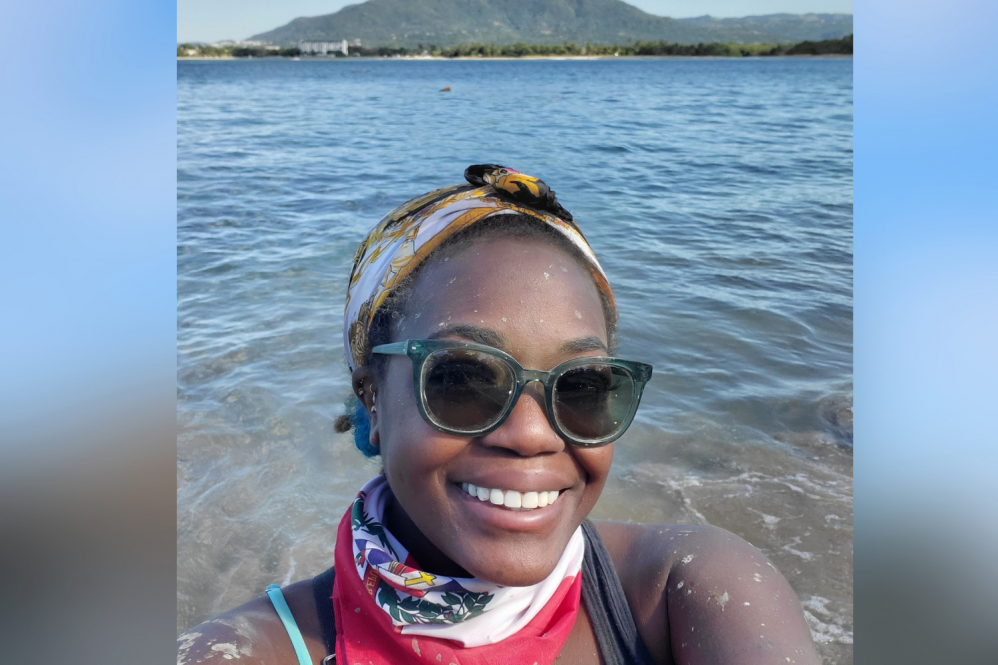Sola Odesina, 38, of New Britain’s last name means “hunter” in Nigerian, but she says she is only hunting for her next travel destination thanks to God and UConn Health.
Even living with her painful, inherited, red-blood cell condition of sickle cell anemia, she’s been traveling the globe thanks to the excellent care management she receives by the experts of UConn Health’s dedicated New England Sickle Cell Institute (NESCI).
Odesina has traveled to over 30 counties so far. Next up is far-away Australia she thinks, for the second time. Before each trip, she consults with her care team at UConn Health to make a backup care plan in the country of her choice.
“UConn Health keeps me going,” she exclaims.

Growing Up with Sickle Cell
“We are Nigerians,” says Odesina, the youngest of three siblings. “My parents came over to the U.S. in the 1980s just before I was born and in 1988 we moved to Connecticut. My parents have sickle cell trait.”
“My brother has sickle cell trait, and my sister and I both have sickle cell anemia,” she says. Interestingly, Odesina’s older siblings were screened before she was born for sickle cell by chance after her sister was found to be anemic even though she looked healthy in their then home state of Illinois. Two years later Odesina was born in Iowa, she was screened and it was discovered that she also had sickle cell disease.
“When I was younger, I had many pain episodes from my sickle cell. But there were times too that I would be just perfectly fine,” Odesina recalls.
“We were very active children. I participated in sports. I ran track, played basketball, and soccer too, plus dance, marching band, jazz band, and played the flute and piano,” she says. “I still had a chance to go to camp too. I attended The Hole in the Wall Gang Camp in Ashford, Connecticut which our family is still involved with periodically to this day.”

Odesina adds, “My parents were big advocates of letting kids be kids -or if we couldn’t do something fully, to do it with a modification. I’m so grateful for my parents. They have allowed me to lead a semi-normal life, and as a kid with sickle cell disease I never knew what I was missing.”
But sometimes immediately after sports, her knee would hurt intensely or when jumping in a cold swimming pool she would immediately feel the pain in her legs and body.
“Our parents ensured that even living with sickle cell that we would be able to advocate for ourselves and others,” she shares. “We tried out western and eastern medicines. In addition to very compassionate hematologists, nurses, sickle cell pain specialists who assured that we received quality care, we also had a psychologist when we were younger who taught us to think about our happy place of Candy Land during pain episodes. So we had a well-rounded team to manage our sickle cell, not just our body but our minds.”
She adds, “My friends have also been supportive and understanding, and have been there for me and they are extended family to me.”
Odesina is very grateful to UConn Health and its Institute dedicated to taking care of patients with sickle cell and also pursuing the latest innovations and clinical trial research too.
She’s been cared for by UConn Health since before there was an established program for sickle cell for at least the last 15 years or more she says.
“The sickle cell team at UConn Health are amazing. I am grateful to Dr. Biree Andemariam for creating the New England Sickle Cell Institute,” says Odesina.
And sickle cell is never going to stop this avid traveler.
“I don’t want to be bogged down by my disease. I am an avid traveler and I hope to see every country in the world,” she says.
Dr. Oladipo Cole she says is an amazing new addition to the Institute team led by Andemariam, and so has been Dr. Genice Nelson, in addition to all the sickle cell nurses and social worker.
Odesina wants everyone to know two things this sickle cell awareness month:

“We are people and we matter,” she adds, “And we have a voice!”
“Sickle cell disease affects so many people around the world. It can be treated, managed, and it must be. We have providers like Dr. Cole, Dr. Andemariam, and Dr. Nelson and their entire team who put in the time and effort into patient care, communication, and research.”
Odesina concludes, “UConn Health’s New England Sickle Cell Institute nurturing and care are enabling us to live a life that is full and that’s worth living.”
She adds, “My faith has also impacted my life. I am grateful to God that I wake up every morning, to live another day.”



